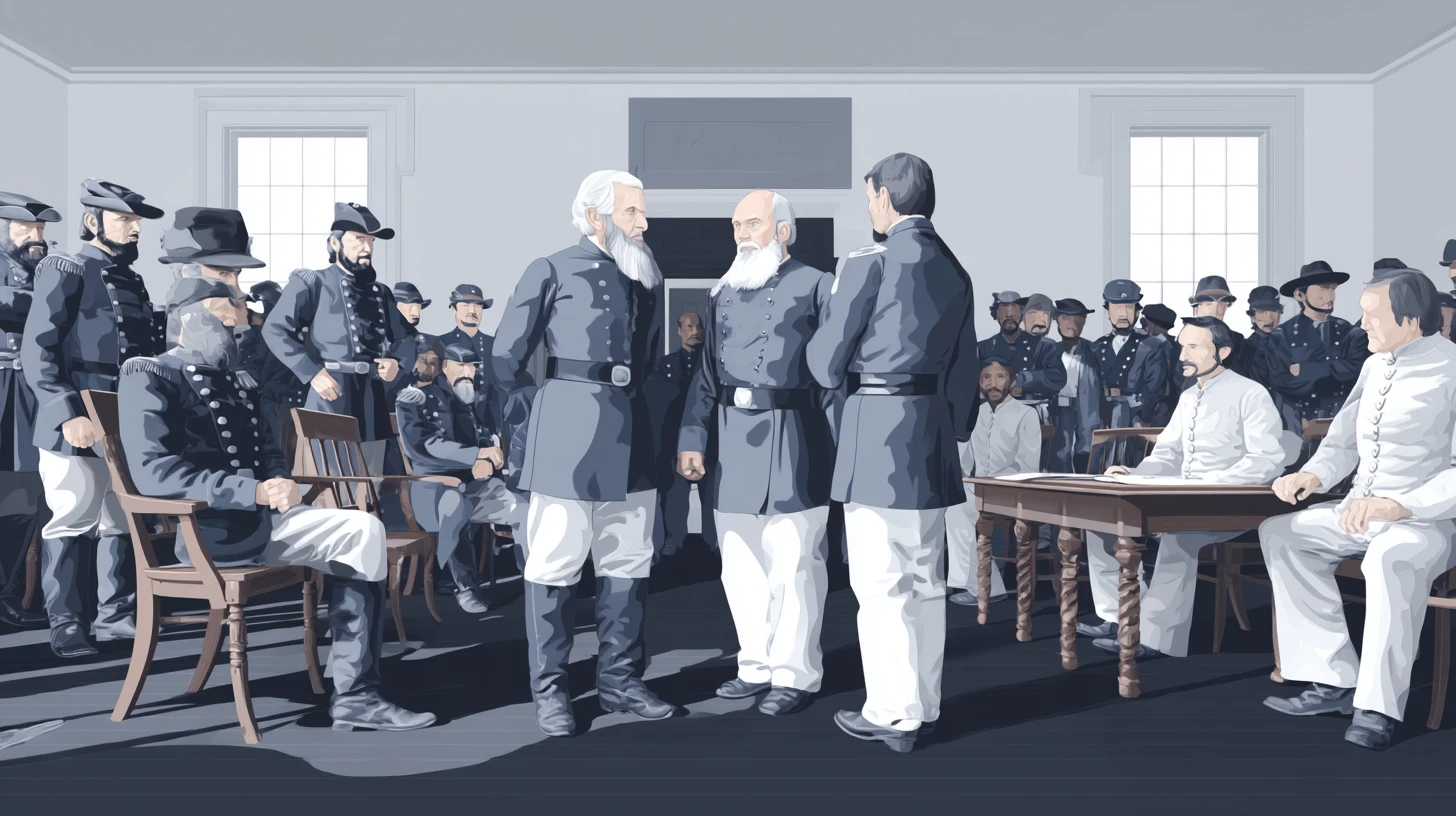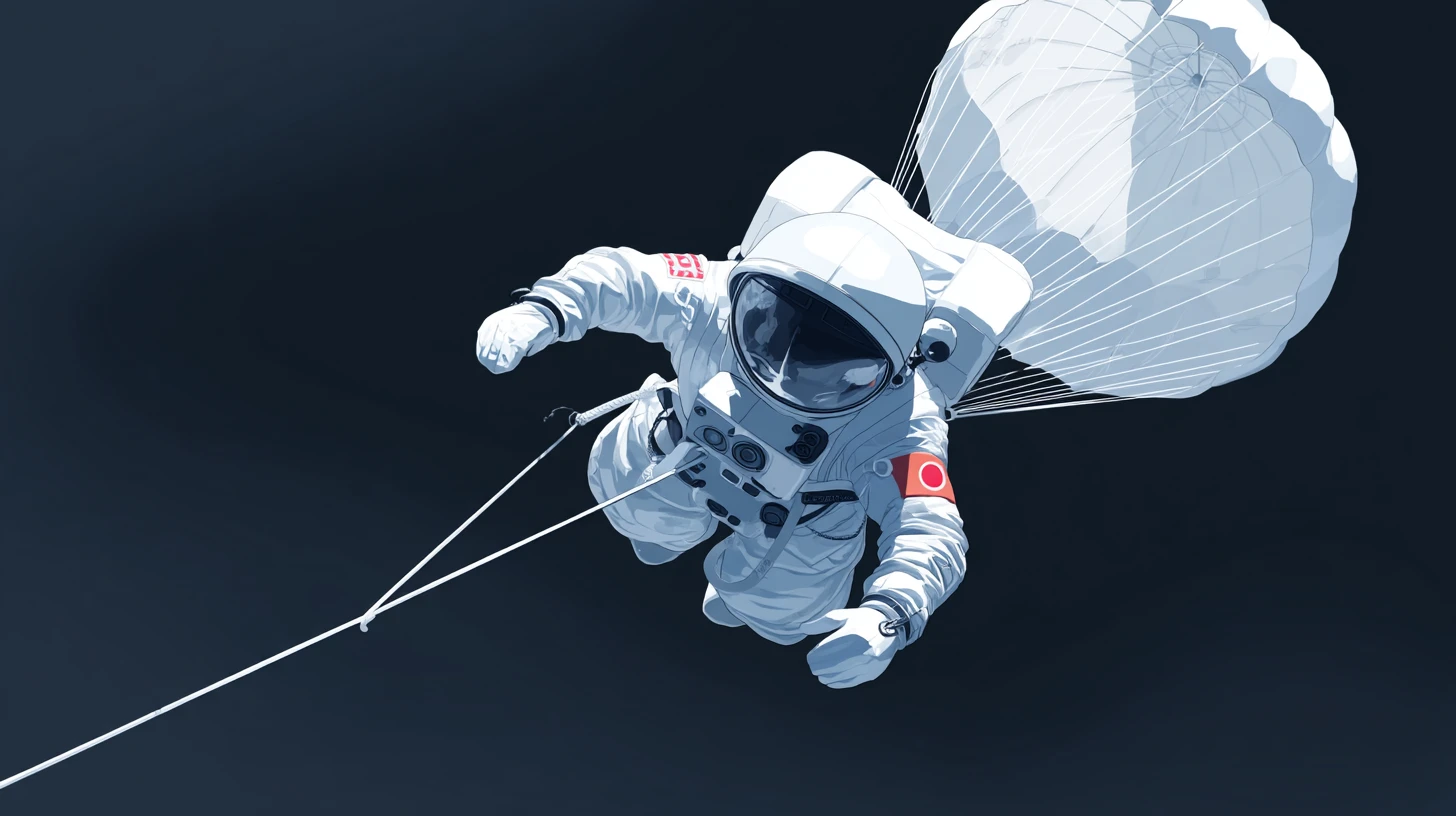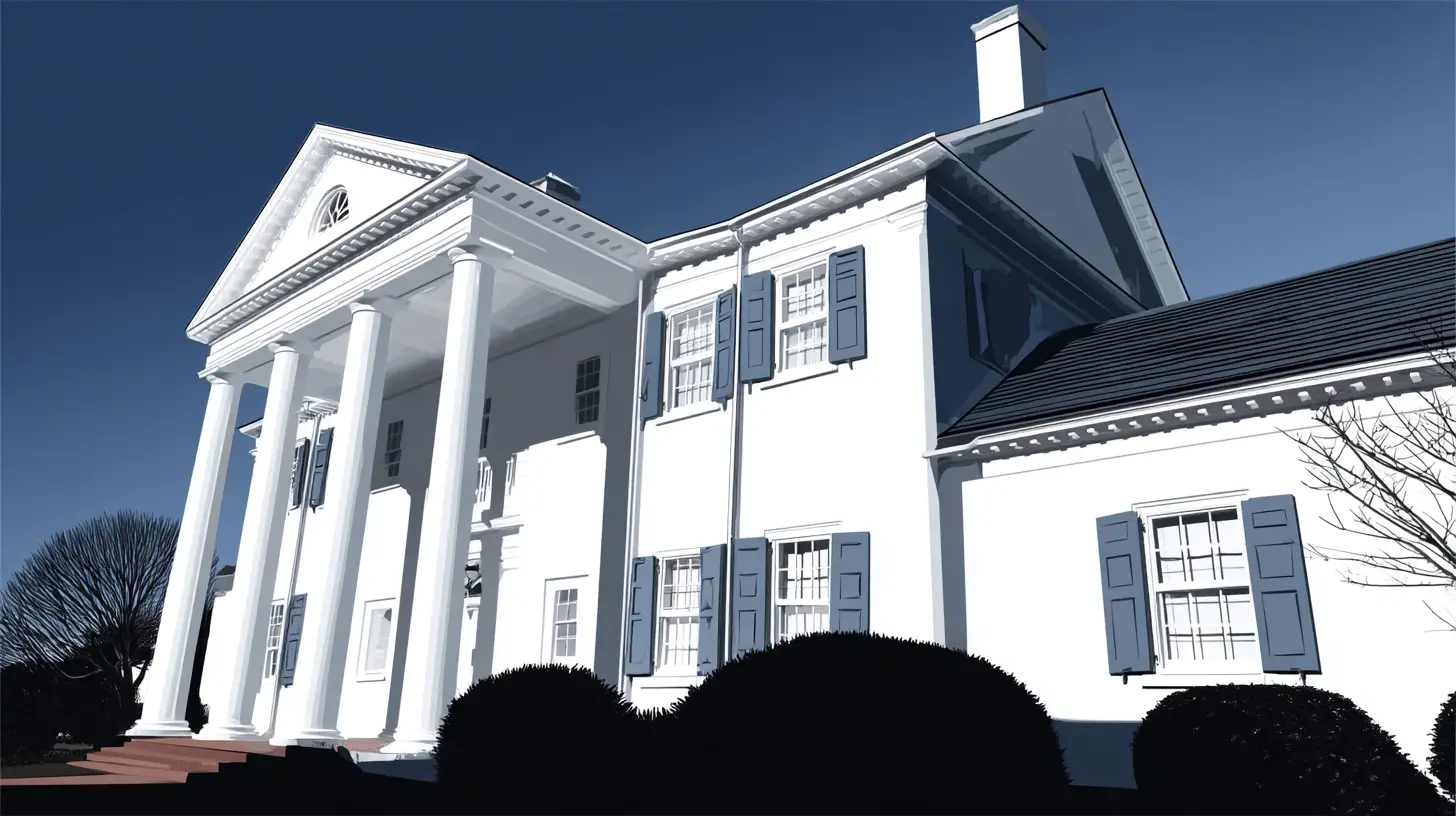.webp)
© History Oasis / Created via Midjourney
The most important events that happened in the month of April:

In a suburban garage in Los Altos, California, Steve Jobs, Steve Wozniak, and Ronald Wayne founded Apple ComputerCompany. The company was bootstrapped with the proceeds from the sale of Wozniak’s HP-65 calculator and Jobs’ Volkswagen bus. This would later become the first trillion-dollar company in American history.

Juan Ponce de León claimed the peninsula of Florida for Spain after landing near present-day St. Augustine. León initially mistook it for an island and named it “La Florida” for the Easter feast of flowers. He was hoping to discover the fabled Fountain of Youth. When he returned to establish a colony, he was killed by the indigenous Calusa.

Martin Cooper, a Motorola engineer walking between 53rd and 54th streets in Manhattan, made the first handheld cellular phone call on a 2½-pound “shoe” prototype that required 10 hours of charging for just 35 minutes of talk time. Cooper dialed his rival at Bell Laboratories to announce his team’s breakthrough.

James Earl Ray assassinated civil rights leader Dr. Martin Luther King Jr. at the Lorraine Motel in Memphis, Tennessee, where he had been supporting striking sanitation workers, despite being one of the most heavily surveilled Americans by both the FBI and military intelligence (under the code name “Operation Lantern Spike”).

Winston Churchill resigned as Britain’s prime minister at 80—ending his nearly 60-year political career. Behind his public composure, he privately formed what his secretary called “a cold hatred” toward his successor, Anthony Eden, cruelly (yet accurately) predicting, “I don’t believe Anthony can do it.”

The first modern Olympic Games opened in Athens, bringing back an ancient tradition after a 1,500-year hiatus. American James Connolly became the first Olympic champion in over a millennium. But Greece won the most medals despite fielding mostly untrained athletes. The swimming events were held in the open Bay of Zea, where competitors battled hypothermia in the frigid Mediterranean waters.

Graduate student Steve Crocker penned RFC 1 at UCLA. Creating the blueprint for the Internet while working on ARPANET. This foundational document would eventually connect billions to the World Wide Web.

Hank Aaron hit a baseball beyond the left-field wall at Atlanta’s Fulton County Stadium for his 715th career home run, shattering Babe Ruth’s unbreakable record amid death threats and racial hostility.

The bloodiest chapter in American history ended at Appomattox Court House, Virginia. General Robert E. Lee surrendered the Confederate Army of Northern Virginia to Lieutenant General Ulysses S. Grant in the humble parlor of Wilmer and Virginia McLean.

The RMS Titanic began its fateful maiden voyage from Southampton with a dramatic near-collision with the SS New York. Due to suction from the Titanic’s massive displacement, the two ships came within just 4 feet of each other. It was a prelude to bad omens to come. Eventually, Captain Smith would face disaster as the ship hit an iceberg, killing 1,500 passengers in the icy Atlantic.

Apollo 13 launched from Kennedy Space Center, but on April 13, the spacecraft suffered a catastrophic oxygen tank explosion 200,000 miles from Earth. This forced astronauts Jim Lovell, Jack Swigert, and Fred Haise to abort their lunar landing and instead loop around the Moon in a damaged spacecraft—using the lunar module as a lifeboat—before making a remarkable return to Earth despite freezing temperatures and limited power.

Soviet cosmonaut Yuri Gagarin became the first human to enter outer space aboard Vostok 1. He completed a single 108-minute orbit around Earth before returning to Soviet soil, where he ejected from his capsule and parachuted separately to the ground, startling a local woman and her granddaughter.

Thomas Jefferson was born at Shadwell Plantation in the Colony of Virginia. He would become the future author of the Declaration of Independence and the third U.S. president.

John Wilkes Booth assassinated President Abraham Lincoln at Ford’s Theatre in Washington, D.C., shooting him in the head during a performance of “Our American Cousin” at precisely the moment when the audience laughed at the line “Well, I guess I know enough to turn you inside out, old gal; you sockdologizing old man-trap!”

The “unsinkable” RMS Titanic struck an iceberg during her maiden voyage. It sank in the North Atlantic Ocean, killing over 1,500 passengers and crew members, while the ship’s band reportedly continued playing “Nearer, My God, to Thee” until the very end.

The Texas City disaster—America’s deadliest industrial accident—began when a fire aboard the SS Grandcamp triggered a devastating chain reaction that detonated 2,300 tons of ammonium nitrate. The explosion killed 581 people and sent a two-ton anchor flying over 1.6 miles across the city.

A failed CIA-backed military operation where 1,400 Cuban exiles attempted to overthrow Fidel Castro’s government. The Bay of Pigs Invasion resulted in a humiliating defeat for the United States within three days.

A devastating 7.9 magnitude earthquake struck San Francisco, killing over 3,000 people and destroying 80% of the city via a fire that burned for four days.

American colonial militiamen fired “the shot heard round the world” at North Bridge in Concord, Massachusetts. It was the first deliberate, ordered attack against British troops during the American Revolutionary War.

Students Eric Harris and Dylan Klebold murdered 12 classmates and one teacher at Columbine High School in Colorado in a meticulously planned attack that included not only firearms but also 99 homemade explosive devices that largely failed to detonate.

Romulus founded Rome after murdering his twin brother Remus in a boundary dispute. He inaugurated a city that would become the heart of Western civilization while establishing a historical pattern of violent succession.

Earth Day launched as the largest secular day of protest in human history, mobilizing 20 million Americans (10% of the U.S. population) against industrial pollution.

William Shakespeare, the creator of approximately 39 plays and 154 sonnets, died at age 52 in Stratford-upon-Avon on the same date traditionally celebrated as his birthday. His gravestone featured a curse against anyone who might move his bones.

The Hubble Space Telescope was launched. It revolutionized our understanding of the cosmos during its 34-year mission.

James Watson and Francis Crick published their one-page paper describing DNA’s double helix structure.

An explosion at the Chernobyl Nuclear Power Plant in Ukraine (then part of the Soviet Union) released catastrophic levels of radiation—approximately 400 times more radioactive material than the Hiroshima and Nagasaki atomicbombings combined—creating the worst nuclear disaster in history.

South Africa held its first democratic election with universal suffrage, where Nelson Mandela led the African National Congress to victory with 62.65% of the vote after 27 years of imprisonment. Millions of citizens queued for days in rural areas with limited infrastructure to cast their ballots.

HMS Bounty’s crew, led by Fletcher Christian, seized control of the ship from Lieutenant William Bligh in the South Pacific, setting him and 18 loyal crewmen adrift in a small launch boat, after which Bligh remarkably navigated over 3,500 nautical miles to safety. Mutineers eventually settled on Pitcairn Island, where they burned the ship to prevent escape.

The Los Angeles riots erupted after four police officers were acquitted in the beating of Rodney King, resulting in six days of widespread violence that left 63 people dead, causing $1 billion in damage.

Adolf Hitler shot himself in the Führerbunker beneath Berlin as Soviet forces closed in, ending his tyrannical rule over Nazi Germany and sparking decades of conspiracy theories despite forensic evidence confirming his death.